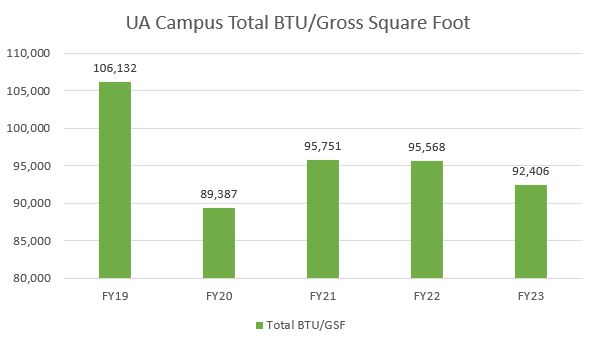The Department of Energy Management is partnering with the SGA to sponsor a competition between residential dorms to see who can save the most energy per square foot. The Crimson Conserve competition takes place between Sept. 23 and Oct. 6, and the winning dorm receives a pizza party.
Tayvin Horace, director of student marketing for the UA Department of Energy Management and a senior marketing major, said the best way for students to engage in the competition is to read the department’s “energy tips” on its Instagram account.
Tips she gave included turning the lights off when not in a room, taking shorter showers and unplugging electronics when not in use.
Horace said the competition is a measure to reduce the University’s carbon footprint and continue the department’s goal to reduce campus energy output by 2% per year through 2025.
“It just helps the University … better reduce our carbon footprint and just make our environment better as a whole,” Horace said.
UA energy engineer Donnie Grill said the goal has been a success so far, citing numbers showing that despite campus size increasing, energy output is decreasing.
Grill said that the competition has the potential to save even more for the University.
“We [can save] $15-20,000 over a two-week period if we get a lot of participant participation from the students,” Grill said.
He said the competition is performed by taking a previous benchmark measurement of the dorms’ energy outputs before the competition, then measuring again during the competition, and seeing which dorm had the biggest decrease per square foot.
“Our campus has grown, so every year we add on new buildings or renovate a building that didn’t use near as much energy because it wasn’t well conditioned,” Grill said. “So all buildings are very well conditioned on campus now, and even though we’ve added on 2 million square feet of buildings, our energy consumption has actually gone down the last three years.”
Horace said students learning habits to reduce their energy will help them as post-college adults when they have to pay their own utility bill.









